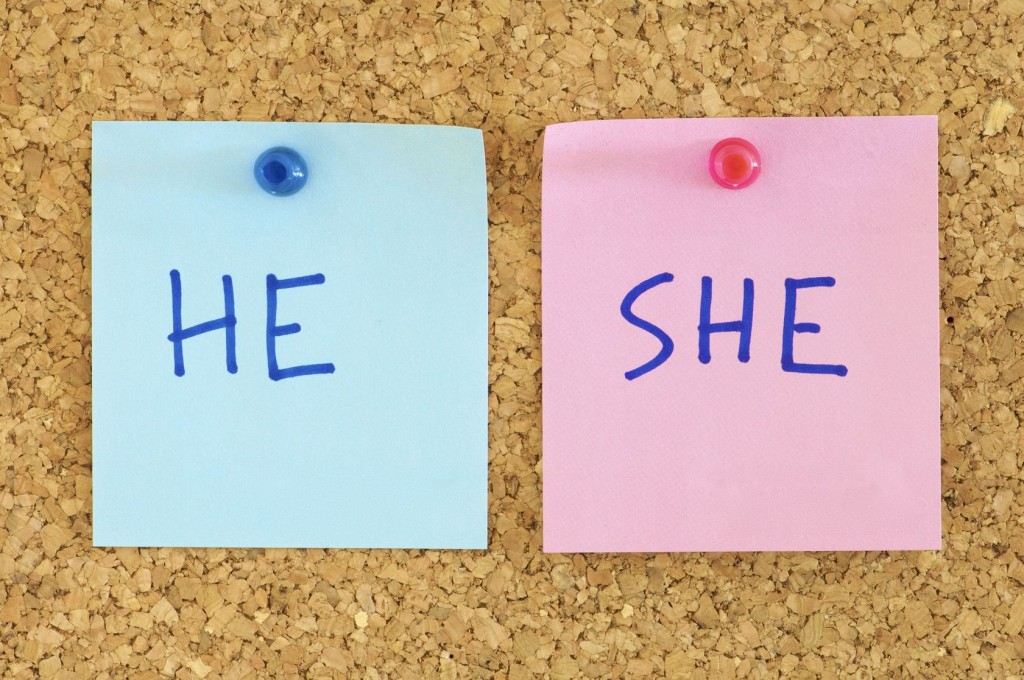At the risk of stating the obvious, writing can be a very difficult thing to do, whether you write for personal fulfillment or for an audience of more than one. It can become an absolute hell when writer’s block, or just an all-around lack of inspiration, has you staring uselessly at a notebook (or computer screen, in many cases) for hours and days and sometimes even years. Just ask the likes of Maya Angelou, Neil Gaiman and Ernest Hemingway – folks with all the talent and ideas in the world and each unable, for some period of time, to express them.
Even when ideas and creativity flow from your pen like hot lava, there are road-blocks and stumps that all writers face. Like figuring out how to write in a way that won’t alienate their audience.
Let’s use myself as an example. I’m a guy. While I may have a lot of female friends and family members and spend the majority of my time around women, the fact is that I will never be a woman or know what it is like to be a woman. That is an experience I will never have, not unless I undergo sexual reassignment surgery and move to a different country where no one knows me. And yet, most if not all of the people who read my articles on Lady Clever, and who read articles on Lady Clever in general, are women. Surprise: that’s our demo.
Thus, I find myself in a position where I’m writing for an audience whose life experiences are fundamentally different from my own, at least in this particular aspect. I’ll admit that sometimes when I’m writing, I have to force myself to think: “If I were a lady, would I want to be reading this? Would this be important to me?” And if the answer is “no,” then I find myself back at square one. This isn’t necessarily groundbreaking or something to be completely surprised by; after all, people have been putting themselves in each other’s shoes since the dawn of time, and any writer worth his or her salt should be able to identify with and reach a vast array of different audiences, regardless of demographic factors like gender. Historically, men write women, and women write… women. It’s less common, still, for women to write men. And sometimes when women write male characters, they’re forced to take on a male pseudonym.
While many of the topics I find myself interested in and writing about usually appeal to both sexes, it takes a conscious effort to respect the differences in gender between my audience and me every time I write. Which points out how deeply gender is coded in the written word, at least in English, and how many unnoticed assumptions we make on a regular basis.
At the risk of sounding like Enid from Legally Blonde, there are many aspects of spoken and written English that favor men over women, not the least of which is the pronoun. In case you need a little refresher in grammar, pronouns replace nouns in sentences to fulfill a number of different functions, like to show possession, and they are: she/her/hers/herself to be used when the noun in question is of the female gender and he/him/his/himself when male. One group for each sex, which makes things equal, right? Well, no, not really. As most of us know, he is often used in places where the writer is making a generalization that includes both sexes, like in the sentence “If a customer has any questions, please tell him to speak to the manager.” Instinctively, we know that “the customer” is referring to both male and female customers because there are both male and female customers. But we accept the use of “him.” The same for mankind: we use it to refer to the totality of human life, female and male, but it still implies one gender.
There are other alternatives that can be used to solve the above issue, like replacing the gendered pronoun with a gender-neutral them in the above sentence, but then the sentence doesn’t make sense grammatically because “the customer” is a singular noun and them is a plural pronoun. Another option is to play fair and include both pronouns in the sentence, like in the following sentence: “Please ask each guest if he or she will be attending with his or her husband or wife.” It makes for an unwieldy mouthful of a sentence, and imposes limits on the way an author can write any given sentence. In the same vein, using forward-slashes like in “he/she” isn’t aesthetically pleasing at all. And try as one might, it’s impossible to avoid pronouns altogether.
If you’re thinking: “Okay, just use she/her/hers/herself when your readers are women and he/him/his/himself when they’re male,” we’re on the same page. I thought that would be the solution, until I realized two things: a writer rarely knows who will make up his audience, and even if he can comfortably predict the gender of his audience (like I can, in the case of Lady Clever readers), traditional notions of gender still rear their nasty, patriarchal heads. (Like how I instinctively just made all writers male.)
Think about all the issues of Cosmo and Elle and Vogue you’ve flipped through: whenever articles give romantic advice or the quizzes that ask you about how you do in bed, don’t they always do so using the word he or him to refer to your partner? These kinds of publications make the assumption that their readers are all straight females, and necessarily exclude those whose sexuality might fall outside the boundaries of hetero. It’s the same kind of assumption people make when they meet someone whose name is “Mrs. So-and-so” and automatically assume that she is married to a man. Who are we to assume that Mrs. So-and-so isn’t a lesbian, or bisexual, or a pansexual, or none of the above?
Reading articles and publications that assume the sexual orientation of a gendered audience is particularly troublesome for me because, as a gay man, I’m acutely aware of the negative and oftentimes painful impacts society’s assumptions about sexuality and gender performance can be on marginalized groups like gays and lesbians. When all I see are titles like “Ways to Increase Your Girlfriend’s Pleasure in Bed” or “How to Make Her Want You,” I’m reminded again and again that I don’t belong to the audience writers envisioned when writing those articles, and neither do people like me. Still, I can’t cast any stones, because I sometimes find myself making those assumptions, too, and expressing them through my own writing, even here on Lady Clever. And the same concern arises with this problem as with the problem about pronouns: I could always make sure to write “his girlfriend or boyfriend” or “her husband or wife” every single time, but then the sentences would come out awkward and I’d be restricting the different ways in which I could write, especially if using more than one pronoun in a sentence. I honestly have no idea how to go about solving this problem. Do you readers ever notice the relationships between gender and language in the spoken and written speech you use on a daily basis? Does it ever bother you, or am I the only one tripping? And what would you use (or what do you use) in your own speech? Please let me know in the comments below; I would truly love some reader insight into this issue.
Just one caveat, though: I refuse to replace all my gendered pronouns with they. If man/woman doesn’t stand for his/her principles, what does he/she have left to stand for?




-300x221.jpg)












